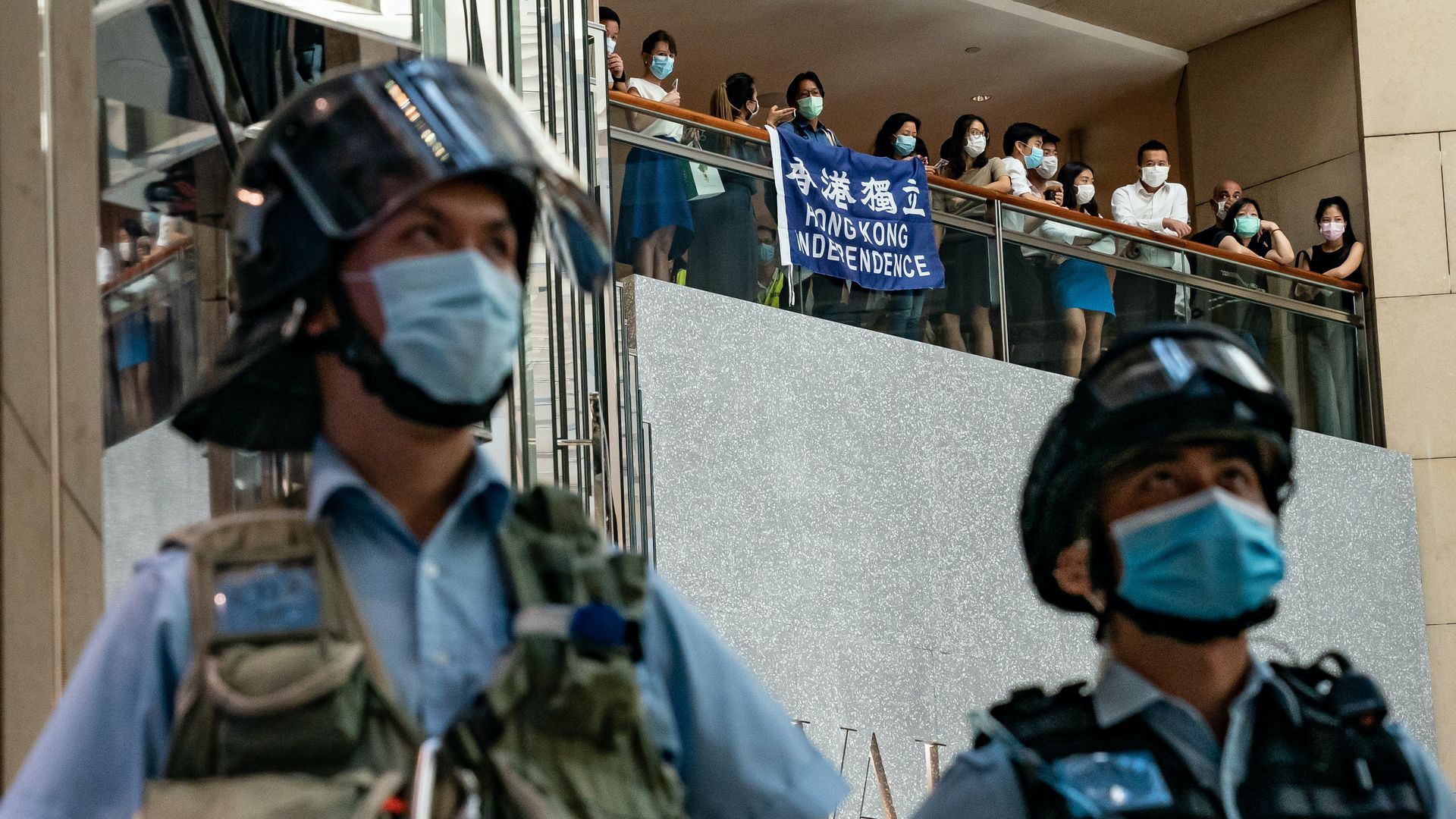Updated Jun 30, 2020 - World
China passes sweeping Hong Kong national security law
Add Axios as your preferred source to
see more of our stories on Google.

Pro-democracy supporters hold a Hong Kong Independence flag and shout slogans during a rally against the national security law as riot police secure an area in a shopping mall in the city on Tuesday. Photo: Anthony Kwan/Getty Images
